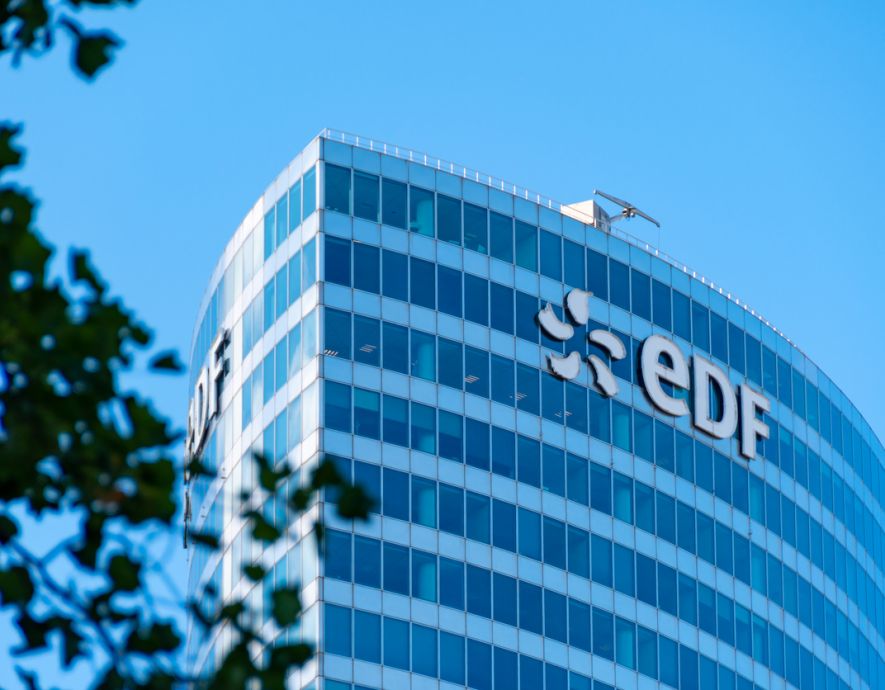
- Home
- Digital Sovereignty
- Web3: a unique geopolitical and strategic occasion for the EU?
Web3: a unique geopolitical and strategic occasion for the EU?


While the Internet’s third generation marks the end of Europe’s « servitude », its legal, regulatory and cybersecurity risks and obstacles require concerted operational responses from all players.
With its applications and services built on a decentralised architecture facilitated by peer-to-peer exchanges, Web3 promises to open new ways of using the Internet. It allows users to create, use, own, control and monetise their information and data. « Tokenisation » and cryptocurrencies are some of the most widespread practices and applications.
« The term refers to Web 1.0 and Web 2.0, which were the first two revolutions in usage: the first allowed Internet users to be informed, the second allowed them to express and mobilise themselves, » says journalist Caroline Faillet, winner of the 2023 Cyber Book Prize in the « University Research » category for her work « Web 3, la nouvelle guerre digitale« .
The end of hegemony?
Web3 is the next step in the development of the web launched by CERN in 1989. « In part, [Web3] will be a ‘semantic web’ or a ‘web of data’ that can understand, combine and automatically interpret information to provide users with a much more enhanced and interactive experience, » says Edina Harbinja, Senior Lecturer in Law at the University of Aston, and Vasileios Karagiannopoulos, Senior Lecturer in Law and Cybercrime at the University of Portsmouth.
For IT engineer Sohail Ghafoor, Web3 is a paradigm shift. It opens the way for a new, transparent and secure Internet that facilitates decentralisation, interoperability and personal sovereignty. It is also a chance for Europeans to regain their digital sovereignty and change their status as a « digital colony of the Chinese and the Americans, » says Caroline Faillet.
« The EU is trying to resist this situation through laws (GDPR, DMA, DSA) and while this weakens American tech giants, it does not disrupt their model. For the first time, with Web3 a technological breakthrough is occurring through decentralisation that these technology companies cannot absorb without totally reinventing themselves. This is a chance for Europeans to tread a third way, » she says.
Patrick Hansen (member of the committee of experts at the EU Blockchain Observatory and Forum) also sees an economic and geopolitical opportunity. Economically, because « not only do Web3 values align perfectly with the sought-after notion of digital sovereignty, crypto would also make the EU more financially independent from the US and offer a unique economic opportunity to revive its struggling economy in the Web2 era. »
Geopolitical, as well: « compared to the USA or China, the EU has several geopolitical advantages (crypto-savvy population, regulation, lower disruption costs) that allow it to benefit the most from a head-on Web3 strategy. This is why I think that the EU has a real shot at playing a major global role in Web3 and why we should do everything in our power to make it one of the key political and economic priorities in the decade ahead,” he says.
These should all help to boost revenue growth on the global Web3 market. While it totalled $3.2 billion in 2021, it is expected to reach $81.5 billion in 2030 according to Emergen Research.
Risks and obstacles
According to the Canadian market research and strategy consulting firm, several obstacles related to ageing technology, software and hardware could slow down the shift to Web3. « Its roll-out will require faster operating systems in the processing centres, and it will only be accessible to users with the most advanced devices. »
Service providers will need to modernise as the adopting applications and websites gain steam among users. The companies in place, meanwhile, will be pushed to improve their digital services to avoid losing their customer bases and revenue.
« The [decentralised web] also comes with some significant legal and regulatory risks. It would make policing cybercrime, including online harassment, hate speech and child abuse images, even more difficult because of its lack of central control and access to data, » say Edina Harbinja and Vasileios Karagiannopoulos.
For Mark Van Staalduinen of the Dutch Blockchain Coalition, companies must understand the risks that come with these technologies and solutions and manage them in advance, without waiting for these risks to manifest. They must invest more heavily in cybersecurity measures and implement effective recovery and resilience strategies.
« While a robust cybersecurity system might dissuade most hacking attempts, hackers are opportunists that take advantage of any vulnerabilities they find. As such, a robust recovery and resilience strategy will ensure that crypto and DeFi [decentralised finance – ed.] companies can bounce back from hacking incidents with minimal disruption to their operations, mitigating losses for their investors and users, » he said at a round table at FIC 2023 in early April.
Due diligence, processes and standards
For Fabien Aufrechter, Web 3.0 director at Vivendi, Web3 is an opportunity in terms of security, property valuation and accountability for content. « I cannot imagine that, tomorrow, companies will be able to avoid Web3. To mitigate the risks, companies must audit Web3 solutions with the same methods as for Web2. They must do their due diligence, » he added during his speech at FIC 2023.
Sébastien Marin, co-founder and chairman of Raid Square, another participant to these discussions, said that, while Web3 was just beginning, we must not be afraid to take risks. « We can take these risks if the right operating procedures and appropriate frameworks for understanding are in place. »
In his opinion, the current challenge lies more in uniting all the players in security around Web3. « We need to bring stakeholders together and build a network of mutual aid that shares feedback and best practices and offers operational standards in this field, » he concluded.
the newsletter
the newsletter

![Image Michel Van Den Berghe takes stock of [Campus Cyber’s] first two years](https://incyber.org//wp-content/uploads/2024/04/incyber-news-cybersecurite-cybersecurity-place-architecture-2024-885x690.jpg)

